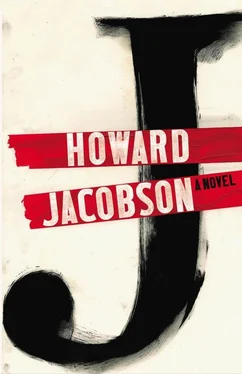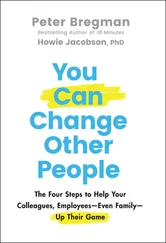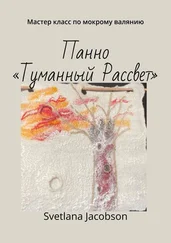‘Then if rumours are all we have to go on,’ she replied at last, ‘I must see what’s happening with my own eyes.’
He didn’t say anything, assuming that having spoken from her heart she wouldn’t think it necessary to act from it.
But the next day she repeated her determination to find out for herself. He shook his head. ‘I can’t let you go,’ he said. ‘It’s too dangerous.’
‘Too dangerous? Yesterday you said it was blown out of all proportion.’
‘We don’t know what’s true or what isn’t, but I can’t let you put yourself in danger. You have a child. Our child. You have a husband. You have the people of Mernoc.’
‘I have a mother and father,’ she reminded him.
‘You could have fooled me,’ he said.
‘Say that again.’
He knew not to say it again.
‘I will take Coira with me,’ she said. ‘If it turns out they’re all right they’ll be glad to see her. Grandchildren always do the trick.’
‘And if they’re not all right?’
‘Then we’ll come back.’
‘Rebecca, I can’t allow this,’ he said.
She told him he had no choice. He told her he was Coira’s father. He couldn’t allow her to endanger the child. And as for grandchildren always doing the trick. . he hesitated. . not this grandchild.
What Rebecca then said, what Rebecca then felt, was a surprise to her. ‘They won’t see Coira like that.’
‘Like what?’
‘As lost to them.’
‘How will they see her?’
It was her turn now to hesitate. ‘As a little bit of both.’
‘She isn’t a little bit of both. She’s been baptised.’
‘You make that sound pretty final.’
‘It is pretty final.’
‘So I’ve been bypassed, have I?’
‘How can you ask that? You too have been baptised.’
‘That doesn’t change everything, Fridleif.’
‘Yes, it does. It changes everything . Otherwise it’s of no meaning.’
‘It doesn’t change what’s in me, my blood, my genes.’
‘Your blood ?’
‘We didn’t start at the beginning, you know. By our law Coira remains within the fold. As do I, as the daughter of my mother.’
Fridleif put his hands together and prayed silently. He had never expected to hear the phrase ‘our law’ on his wife’s lips. He felt as though she had struck him in the heart.
Rebecca didn’t join him in prayer. She looked out of the window at the featureless grey sea.
‘I never thought we would fight over who our child belongs to,’ Fridleif said at last.
‘I’m not fighting. I know who she belongs to. She belongs to us. You and me.’
‘And to Christ.’
She waved the idea away. If it had been beautiful to her once, it wasn’t beautiful to her now. ‘She belongs to us, Fridleif. Us ! And I am half of us.’
‘I won’t allow you to take her away.’
If it was a threat, it had no menace in it.
The following morning she was gone. She and the child.
But she made a concession to her husband, though she never told him of it. She decided against taking Coira with her. If her parents weren’t alive, she would be subjecting her to danger for no reason. If they were alive, God willing, she would make peace with them face to face herself, and then return with the child. Her reasoning was clear. If Coira was her daughter by blood, in direct line of descendancy from her mother and her grandparents and their grandparents before them, then she wasn’t safe. No one in whom the lust for murder had been aroused was going to stop to consider the finer points of lineage and conversion; no one was going to care that Coira had been baptised and was, in her father’s eyes, the child of Christ. She had heard her parents make the argument again and again — ‘When they come to get you, Becky, they won’t be making subtle distinctions. They won’t spare you because you’ve changed your name and happen to think differently from us on a few points. They won’t release you with a kiss because you think it couldn’t ever happen here. It’s who you are by blood that interests them, nothing else.’ She had despaired of them. Well, for different reasons she was despairing now. But she couldn’t leave Coira with her father. Not after the words that had been exchanged. She had made great sacrifices for Fridleif. She had broken the hearts of her mother and father who in her own heart she did not expect ever to see again. She had given him everything else; she would not give him her child.
It was at this point in her deliberations that she remembered what she’d heard of St Brigid’s Convent and Orphanage. Fridleif would never think of searching for her there. He would as soon go looking for his child in hell. In the anger that spilled from her she took pleasure from the thought that a Roman Catholic orphanage was an even greater anathema to him than her parents’ home.
Though she would have liked to check the nuns out, there wasn’t any way she could do so without arousing their suspicions. They might recognise her as the wife of a minister, and she did not want them to connect Fridleif to the child. She pulled at the bell to the orphanage at an hour it was evident there were nuns about, and then fled. What the nuns found when they answered the door was a basket with a baby inside. ‘Moses’ they would have called her, had there not been a label tied around her neck identifying her as Coira. No surname. Rebecca would have liked to restore her own name to the child but — though she didn’t share her parents’ suspiciousness, especially of the conventual — didn’t think she dare risk it. Coira Lestchinsky! — maybe not. An accompanying note explained that the mother was suffering clinical depression and, though she loved the child with all her heart, did not feel capable of looking after her as she would have wished. She commended Coira, who had been baptised far from here, to the tender Christian mercies of the nuns. ‘Love her,’ she pleaded.
Towards the early years of Coira’s education she made what she hoped was a fair contribution. She would collect the child at a later date when, God willing, she would be in better health, but, if she failed to return, a more substantial donation would automatically be made. She left a parcel of letters with the child’s belongings. These, were she not to return, were to be opened only on Coira’s majority.
She wasn’t sure, at the moment of leaving her, that she could go through with it, but her grief reminded her of what her parents must have felt when she left them, and she knew she had to find them if she could.
She removed the label from Coira’s neck and wrote a further message on it. ‘Protect her for me. See how small she is — she is more shawl than baby. Pray for her. Pray, if you can, for me. Pray that this has a safe and happy outcome.’
But like many other prayers uttered in these days, the nuns’ prayers, if they remembered to say them, were not listened to. Rebecca did not locate her parents nor did she ever return, in safety and happiness, for Coira.
Not counting the letters, all she bequeathed to her bereft daughter was her own sense of being between the devil and the deep blue sea. And the terrible conundrum of not knowing which was which.
iii
In the days he’d been without Ailinn, Kevern had gone again through his parents’ papers. He had been tempted to open the box intended for a grandchild, should one materialise, but couldn’t bring himself to disobey instructions he had long considered sacred. For a non-believer, Kevern had a highly developed sense of the sacramental. Duty, to the living and the dead, hemmed him in. His life, from the moment he opened his eyes — and whether he found Ailinn beside him or not — was a chain of rituals he could no more break than he could go without food or self-reprobation. Without obligation and repetition he was as chaff in the wind. If religion meant anything he could understand, it was this: doing again what had worked when you did it the last time, doing it because you believed you had to, remonstrating against the random, refusing to be tossed about the universe as though the universe had no use for you. That was the beginning and the end of religious devotion to him, anyway. Not what you owed to a god but what you owed to the idea that you weren’t arbitrary or accidental. And whatever you did more than three times a week, at the same time and with the same reverence, was another blow struck against the haphazard.
Читать дальше












